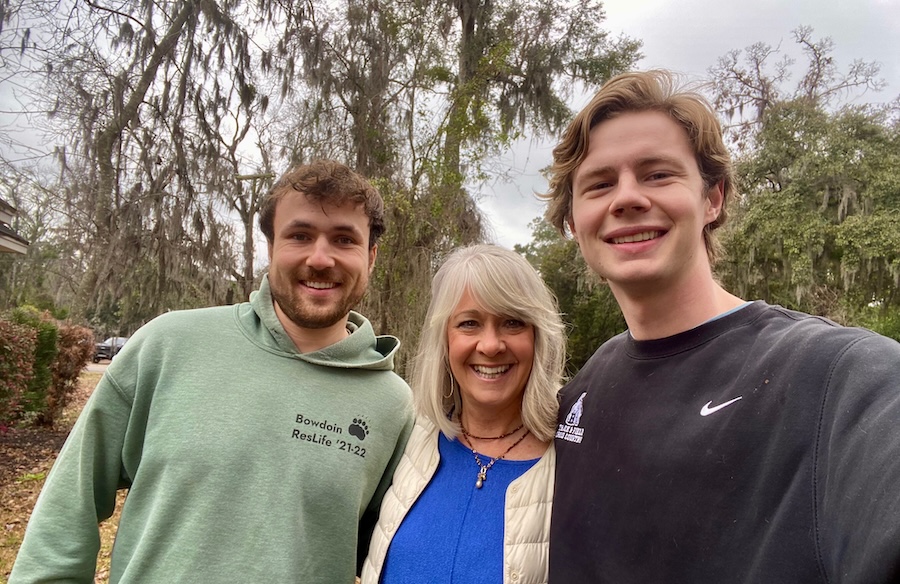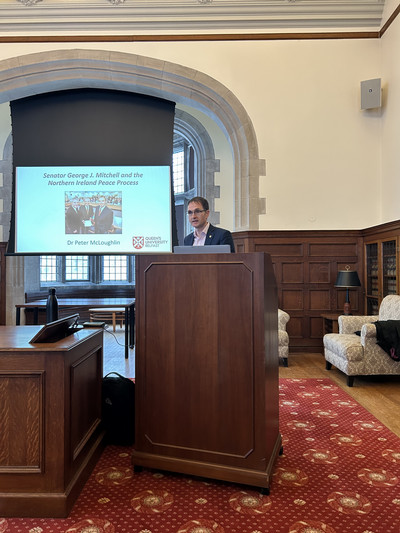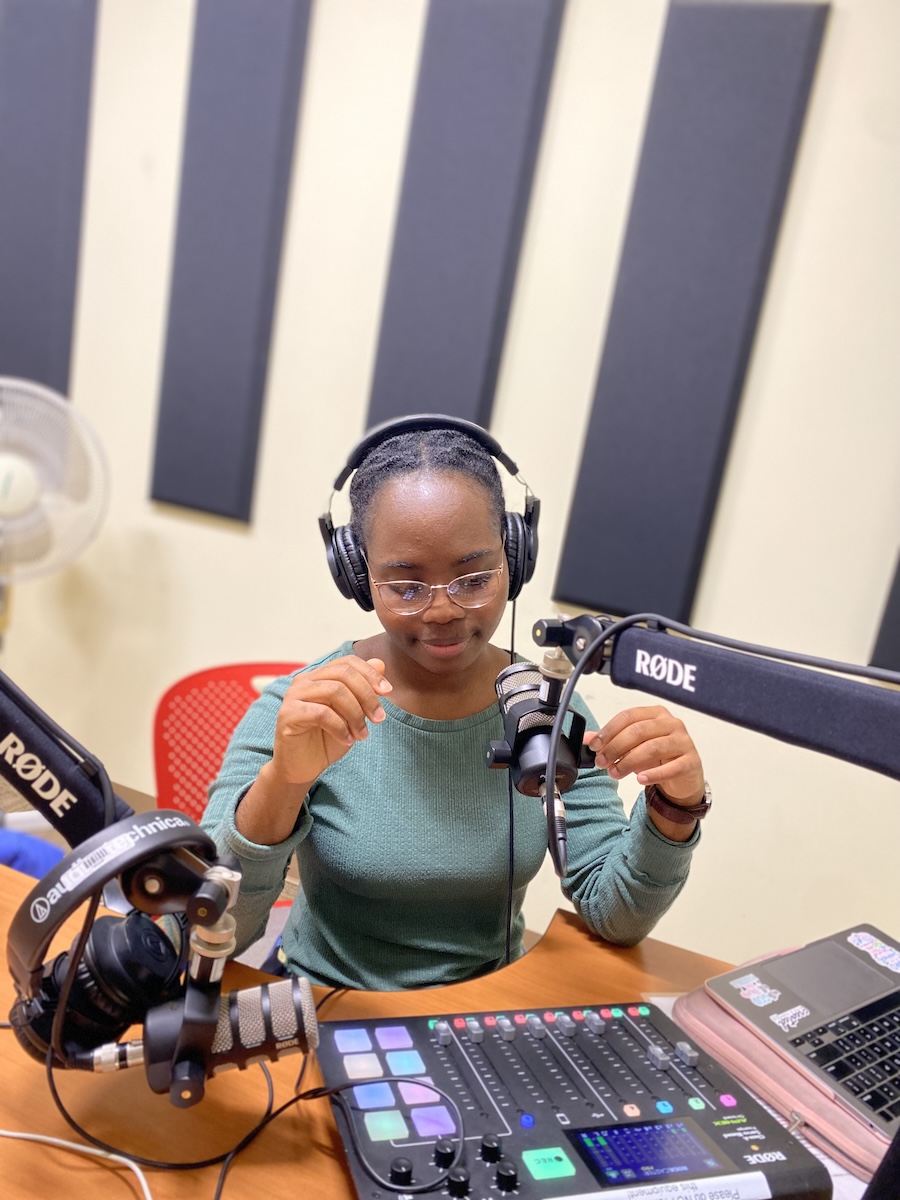Bowdoin College's 2018 Scholarship Appreciation Luncheon
By Rebecca Goldfine“This is one of the truly great moments of the year at Bowdoin; it is so fabulous to have so many of our alumni back, and our students as well,” said President Clayton Rose. “It is also a remarkable reminder of how Bowdoin changes lives.”
“Financial aid is at the core of who we are, our values,” Rose continued, “and it is what allows us—as we have been able to do over a long stretch of time—to bring the most amazing, exceptional students to Bowdoin. We continue to do that year after year after year, and it is only through your remarkable generosity that we’re able to do that, and through that remain the exceptional college that we are. So thank you. Today is one way of celebrating that.”
Following a performance by Miscellania, the oldest all-female a cappella group on campus, Trustee David A. Morales ’97 spoke about his “personal journey,” saying it “illustrates the power of a Bowdoin education.”
Morales has served as the executive vice-president and chief strategy officer for Steward Health Care in Boston, as commissioner for Massachusetts’ Division of Health Care Finance and Policy, and as deputy chief of staff and senior advisor for Massachusetts governor Deval Patrick.
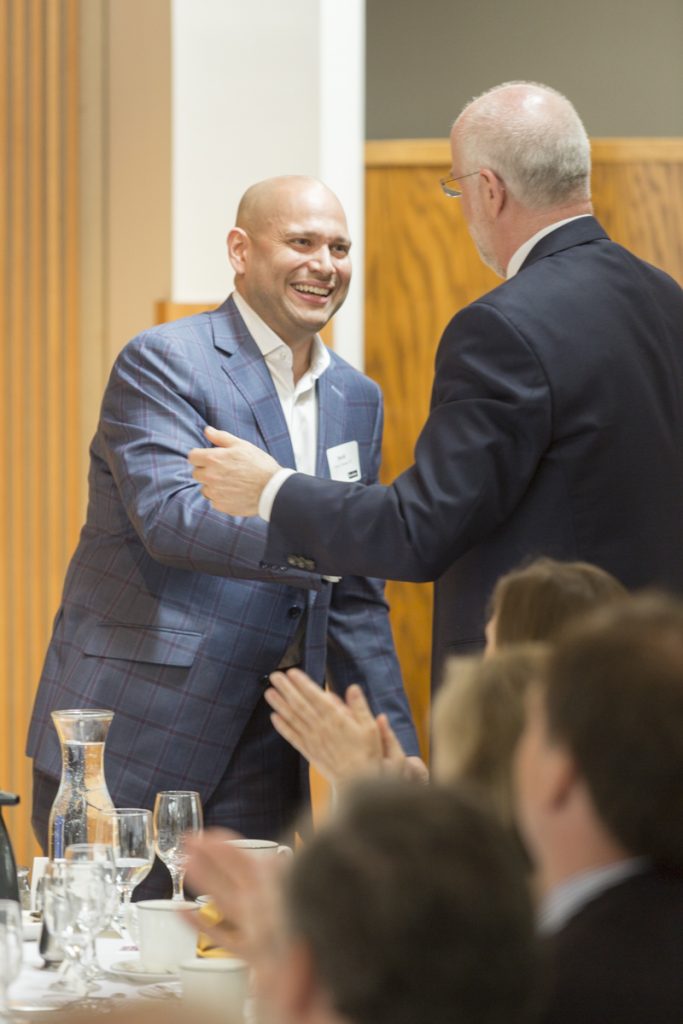
He grew up Puerto Rico and came to Lynn, Mass., with his mother and siblings when he was 11 to join his father, who had left some time earlier to find work and improve his family’s financial situation. The city then was tough, with one of the highest crime rates of the state at the time. “Lynn contributed to my grit and my resolve,” Morales said.
But his college prospects were not certain. Morales recalled how a seventh-grade math teacher regularly told him and a friend that they would end up flipping burgers at McDonald’s. “Boy, how I got back at him years later,” Morales said. He joined his high school’s football team, which he said saved him from the streets. His coach became an important mentor to him, encouraging him to attend college, even driving the high schooler to area colleges to drive home the point.
The coach encouraged Morales to apply to Bowdoin, in part for its need-blind policy. Used to a diverse and multicultural city, Morales suffered culture shock when he arrived at Bowdoin. In his first semester, he struggled academically and socially, with “little in common with most students on campus.” Then the college assigned him a student mentor, a Haitian-American woman who to this day remains one of his closest friends. Things got better.
“This small college transformed my life and enabled me to blaze a pathway out of poverty,” he said. “Bowdoin was also a catalyst for deep personal change, critical thinking skills, a rigorous work ethic, as well as a burning passion for a mission-driven life.”
He credits Bowdoin with helping him get his first job as a budget analyst at the Massachusetts Ways and Means Committee. Since that first job, he said his Bowdoin education has enabled him to serve two governors — one Democrat, one Republican — advise a speaker of the house and a senate president, play a key role in Massachusetts’ healthcare reform, work as a healthcare executive, and buy a home for his parents and his own family.
Morales thanked the alumni, donors, and parents for their commitment to the College. “Your generosity makes it possible for all students—regardless of their color, ethnicity, religion, gender, sexual orientation, or class—to have access to the highest level of education in America, and an opportunity to build a successful future for themselves and their families.”
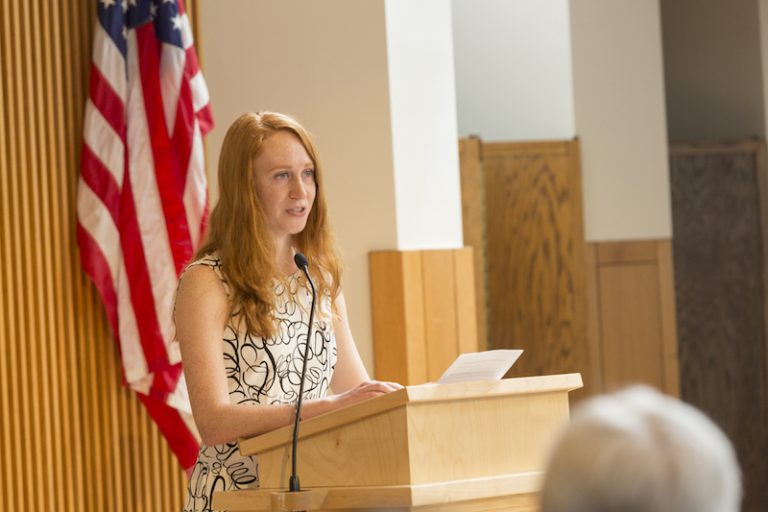
Phoebe Thompson ’18, who will teach English next year in Spain as a Fulbright fellow, described her childhood in the mid-Ohio Valley, nestled in the foothills of the Appalachian mountains. It is a place young people are reluctant to leave. She drew an analogy between the social and family dynamics of the valley to a bucket of crabs. “Basically, in a bucket of live crabs, any one of them could climb out at any time, but all of the other crabs pull climbers back down, ensuring the group’s collective demise. Essentially, the idea is, if I can’t have it, neither can you,” she said.
One-third of her high school classmates now have their own child, and a handful have two. “It’s a different world,” the earth and oceanographic sciences and Hispanic studies double major said. “Meanwhile, I came here. By virtue of my parents’ selflessness and faith in me, and thanks in large part to the scholarships I received, I am standing here in front of you today, wrapping up my Bowdoin education. I’ve learned about oceans and volcanoes; I’ve learned a Romance language and a computer language. I have studied abroad, and I have learned how to write and communicate effectively. I’ve made lifelong friends who I love with all my heart, and I’ve been encouraged and supported by brilliant faculty and staff who are leaders in what they do.”
At times Thompson has returned home to meet with high-achieving students at her high school, to urge them to attend a college like Bowdoin, despite them professing they’d rather stay in state because it’s cheaper and closer to home. “No one has given them the boost to see out, over the lip of that bucket of crabs. They don’t know that there is generous loan-free financial aid waiting for a student just like them. They don’t know that they can put down roots elsewhere without destroying the ones they’ve grown over their first 18 years.”
“To be honest, I didn’t fully know that either. But I was allowed to try, and I sure found a great place to land.” Read Thompson’s full remarks.
Slideshow images by Dennis Griggs/Tannery Hill Studios





































